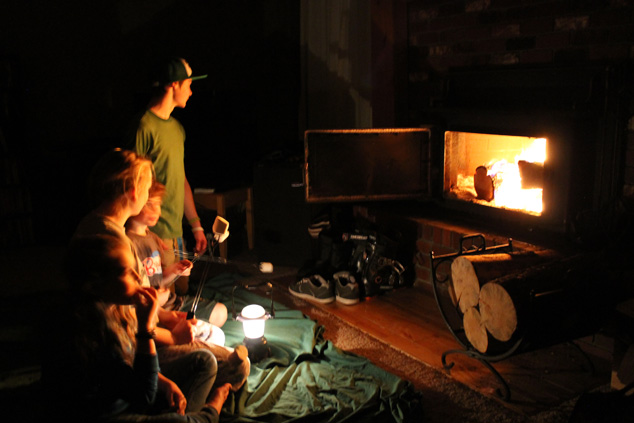
After genereral conference is an ideal time to start thinking about our resolutions for doing better and being better. Many have already. There is power in this process. Elder Joe J. Christensen said:
While many of us take seriously our New Year’s resolutions, some of us may not have made any because of our prior problems in keeping them. We must not overlook the power that making good resolutions can have in helping make our lives happier and more successful—regardless of our past performance. … After all, self-improvement by coming unto Christ is at the heart of why we are here in mortality.
Apostles and prophets of The Church of Jesus Christ of Latter-day Saints teach the importance of becoming more like and drawing closer to our Savior. Making and keeping new year’s resolutions is one way we can continue to progress toward that goal. Elder Christensen said:
In the Sermon on the Mount, the Savior is recorded as saying, “Be ye therefore perfect, even as your Father which is in heaven is perfect” (Matthew 5:48). In the Joseph Smith Translation, the first part of that sentence is rendered, “Ye are therefore commanded to be perfect” (JST, Matthew 5:50). The translation of the Greek word for perfect means “complete, finished, fully developed.” Some biblical analysts indicate that the suggestion to become perfect is exaggerated idealism or scriptural hyperbole. We as Latter-day Saints believe that the Savior meant what he said and that becoming like our Father in Heaven and the Savior is a commandment, not just a suggestion.
Resolutions— By Way of Power Outages
The inspiration for my resolutions came from a unique experience I had during the Christmas holidays—a major power outage that affected multiple counties and upwards of 10,000 people in our little mountain community. Winter is one of the busiest times of the year when you live in a resort town. And with the Christmas holidays, things can get downright crazy.
But just days before Christmas 2015, things were looking dark. Literally. Rather than gearing up for Christmas, we were getting ourselves ready to spend several days without power. I had no idea what Christmas would be like that year because I hadn’t finished shopping for it. But I noticed something peculiar. I only had one kid excited for Santa to come—but all 4 of my kids were giddy at the possibility of spending 2 or 3 days in the dark. As my two girls and I ran to the store to stock up on necessary supplies, they were chatting about all the things we were going to do as a family while the power was out. I realized that there were lessons in this experience that I needed to learn. I found many of them through the parables of the Savior.
The Savior often taught in parables that had layers of meanings and teachings. Of these parables, Elder Carl B. Pratt said,
The parables of the Savior have more meaning to us if we have “lived” them or seen them lived or fulfilled by others close to us. When this happens, they become more than just a beautiful and simple instructive device; they become real to us.
The power of the parable is found in how we relate them to our own experiences.
1. The Wisdom of Being Prepared
My first resolution came to me as I was standing in line in the grocery store, where I resolved that I would be more prepared. I couldn’t help feeling like one of the foolish women in the Parable of the Ten Virgins. In this parable, ten virgins are waiting for the bridegroom to take them to the wedding feast. Since no one knew when he would come, all were told to fill their lamps with oil and have extra on hand just in case. Five were wise and had filled their lamps and brought extra oil, and five were foolish and did not. Of this parable, Elder James E. Faust said:
The parable of the ten virgins, five wise and five foolish, has both a spiritual and a temporal application. Each of us has a lamp to light the way, but it requires that every one of us put the oil in our own lamps to produce that light.
We had two days of power outages. On the first day, the power was out for seven hours and we sat around the fire and played games. I wasn’t too worried because the power always came back on. The second day, the power went out and we received an automated call telling us to be prepared for several more days without electricity. The Church of Jesus Christ teaches that we need to be prepared in case of an emergency with a supply of food and water. We have a supply of food. But I realized quickly that my preparation wasn’t sufficient for cooking without electricity. I can’t cook dried beans over an open fire in the middle of winter, and my wood-burning fireplace insert wasn’t big enough to hold any of my pots for cooking. So I had to come up with a different plan. Fast.
I knew we needed water and supplies, and in a town as small as ours, these items would sell out fast. Because my kids were so excited for the power outage, I figured we should have fun with it. So along with the necessities, we bought some goodies. We weren’t preparing for several days without power, we were preparing for an indoor camping adventure. And we were excited. I realized that I needed to clarify my first resolution for the new year: Always be prepared— for an adventure with my family.
2. True Wealth is Not Measured in Money

Perhaps the greatest reason I was so struck by this experience was the reaction of my kids. They were more excited at the prospect of an indoor camping adventure than they were for Christmas morning. I was so worried about making sure they had gifts under the tree that I was missing spending time with my kids. And all they really wanted was time as a family. My next resolution was to give them just that. President Dieter F. Uchtdorf taught:
… It is good advice to slow down a little, steady the course, and focus on the essentials when experiencing adverse conditions. … One of the characteristics of modern life seems to be that we are moving at an ever-increasing rate, regardless of turbulence or obstacles.
Let’s be honest; it’s rather easy to be busy. We all can think up a list of tasks that will overwhelm our schedules. Some might even think that their self-worth depends on the length of their to-do list. … Because they unnecessarily complicate their lives, they often feel increased frustration, diminished joy, and too little sense of meaning in their lives.
Our family was getting too caught up in the hustle and bustle to really enjoy spending quality time together. Having the power out gave us a chance to simplify our lives and just have fun. President Uchtdorf said:
… We must place high priority on our families. We build deep and loving family relationships by doing simple things together, like family dinner and family home evening and by just having fun together. In family relationships love is really spelled t-i-m-e, time. Taking time for each other is the key for harmony at home.
I was reminded of the story of the rich young man who asked the Savior what he needed to do to gain eternal life. (See Mark 10:17-23.) This young man said that he had obeyed all of God’s commandments from his childhood. What else did he need to do? When the Savior told him to sell his possessions and follow Him, the young man went away sorrowing. He could not give away his possessions for the Savior. I thought of this story as I realized that I was focusing on the things of the world. So my second resolution for the new year is to focus more on the true blessings that I have—my family and the gospel of Jesus Christ. This is where the true wealth of blessings is found.
3. The Trap of the Tares
The busy-ness of life can also blind us to the trap of the tares. In the Savior’s parable, a farmer planted good seeds in his fields, but then an enemy crept in during the night and planted weeds (or tares) in among the wheat. When the wheat grew in, so did the tares. The two plants grew so close together that the farmer could not pluck out the weeds without risking his crop. So the plants grew together until, at the harvest, they could be separated. (See Matthew 13:24-30.) The parable of the wheat and tares is so applicable today— and is the foundation for my third resolution. Elder L. Tom Perry said:
That old enemy of all mankind has found as many devices as he can think of to scatter tares far and wide. He has found ways to have them penetrate even the sanctity of our own homes. The wicked and worldly ways have become so widespread there seems to be no real way of weeding them out. They come by wire and through the air into the very devices we have developed to educate and entertain us. The wheat and the tares have grown close together. A steward managing the field must, with all his or her power, nourish that which is good and make it so strong and beautiful the tares will have no appeal either to the eye or the ear. How blessed are we as members of the Lord’s Church to have the precious gospel of our Lord and Savior as a foundation on which we can build our lives.
Sometimes tares come in the form of things that are good, but not the best use of our time. Elder Dallin H. Oaks said:
We should begin by recognizing the reality that just because something is good is not a sufficient reason for doing it. The number of good things we can do far exceeds the time available to accomplish them. Some things are better than good, and these are the things that should command priority attention in our lives. …
Some of our most important choices concern family activities. … In choosing how we spend time as a family, we should be careful not to exhaust our available time on things that are merely good and leave little time for that which is better or best. A friend took his young family on a series of summer vacation trips, including visits to memorable historic sites. At the end of the summer he asked his teenage son which of these good summer activities he enjoyed most. The father learned from the reply, and so did those he told of it. “The thing I liked best this summer,” the boy replied, “was the night you and I laid on the lawn and looked at the stars and talked.” Super family activities may be good for children, but they are not always better than one-on-one time with a loving parent.
I thought of this story as my husband, kids and I made the most of our indoor camping adventure. We roasted hot dogs, marshmallows and Starburst over the fire in our wood-burning stove. We cooked cans of soup on it, too. And we laughed and had fun. When the power came back on, we kept the lights out and stayed in the living room as a family. The kids all slept in the living room under the Christmas tree that night, too.
That first night, I kept thinking about how unprepared I had been for the power outage, and I vowed I would be better prepared for next time. But the more I have thought about it, the more I have realized that being prepared is more than just stocking up on propane, matches, batteries and water. It’s about having the supplies in place so that we can enjoy the simplicity of life without the modern-day distractions. The second night, one of my girls said, “Mom, if the power comes back on tonight, can we please leave the lights and everything off?” So my third resolution is to every so often, unplug the house so we can plug in as a family. That is one goal that we can make and keep as a family. As President Uchtdorf said:
I think most of us intuitively understand how important the fundamentals are. It is just that we sometimes get distracted by so many things that seem more enticing.
Printed material, wide-ranging media sources, electronic tools and gadgets—all helpful if used properly—can become hurtful diversions or heartless chambers of isolation. … We would do well to slow down a little, proceed at the optimum speed for our circumstances, focus on the significant, lift up our eyes, and truly see the things that matter most.
 That is the underlying goal for all of my 2016 resolutions—to truly see the things that matter most by not focusing on the things that matter the least.
That is the underlying goal for all of my 2016 resolutions—to truly see the things that matter most by not focusing on the things that matter the least.





